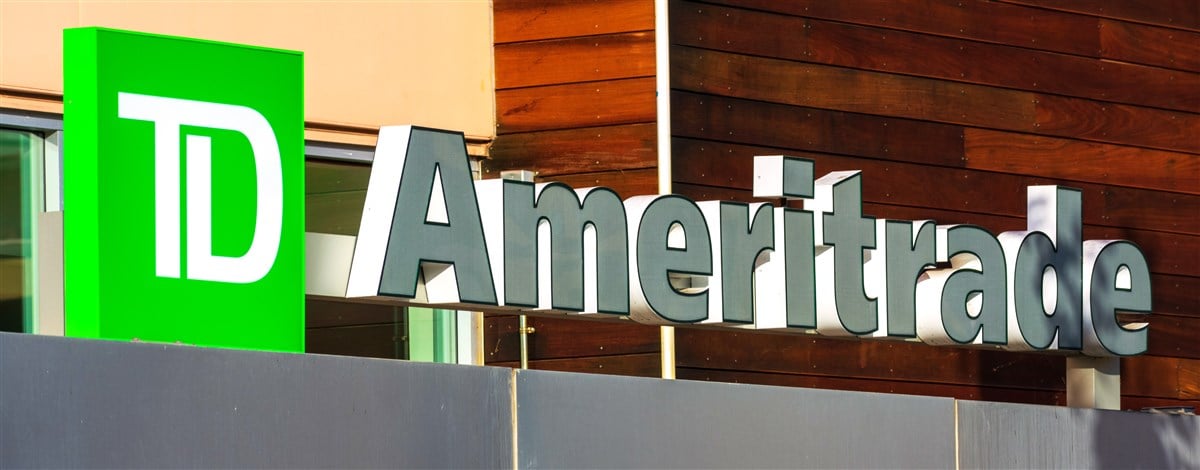
Are there any safe stocks out there? Investors need to align their portfolios with fundamental factors more than ever as rotating industries pose a new set of risks (and rewards). While some may focus solely on technology stocks, namely those dealing with artificial intelligence trends, there's a better way to pick companies.
Unexpectedly, the financial sector is one indispensable consideration for investors today, thanks to the Federal Reserve (the Fed). To tame inflation, the Fed has kept interest rates elevated in 2023 and 2024, helping stocks like The Goldman Sachs Group Inc. (NYSE: GS) and J.P. Morgan Chase & Co. (NYSE: JPM) see more profits.
Because these banks deal with capital markets for their clients, high interest rates call for more interest income in their loans and other complex products. This is why these two investment banks are trading near all-time highs. However, a third unlikely candidate has joined the list: The Charles Schwab Co. (NYSE: SCHW).
The Right Economic Cycle
During 2023-2024, The Fed saw it fit to raise—and keep—interest rates at cyclical highs, bringing the stocks on this list to new highs. Because financial stocks make most of their profits from net interest income (NII), rising interest rates allow them to earn more in interest than what they are obligated to pay on their own obligations.
Despite traders betting on interest rates coming as soon as September 2024, according to the CME's FedWatch tool, the truth is that the Fed isn't ready to start easing just yet. One surefire way to tell whether the Fed has changed its mind is through looking at its balance sheet.
Over the past month, the Fed has sold up to $7.4 billion in treasury securities (bonds). This activity has been amplified in the past 12 months, with sales of up to $1.9 trillion in these products. Here's why that matters.
Bond prices move opposite their yields, and bond yields move together with interest rates (or at least their expectations). Because the Fed is selling bonds and keeping their prices down, interest rates aren't likely to decline soon.
If the Fed really wanted to cut rates, it would buy these products instead of selling them, leading many to believe the market had wrongly priced in these interest rate cuts long before reality set in.
Why Banks Could Be a Good Play
Knowing that interest rates may not be coming down soon, markets began bidding Goldman and J.P. Morgan stock higher, leading both to reach a new 52-week high. This bullish momentum prompted Wall Street analysts to boost price targets for these banks.
Those at Jefferies Financial see a $228 valuation for J.P. Morgan stock, calling for a 16% upside from where the stock trades today. For Goldman, it looks more like a $504 price target from Wells Fargo analysts; to prove them right, Goldman stock has to rally by 9% from today's price.
Markets are also willing to express their views, slapping a premium valuation for both these banks. At a 12.4x P/E ratio, J.P. Morgan trades at a 27.8% premium to the commercial bank industry's average 9.7x P/E valuation today.
Likewise, Goldman's 18.4x P/E commands a premium of 11.5% over the broker-dealer industry's 16.5x current valuation. Stocks typically trade near 52-week highs and command premium valuations for a good reason, and this added interest income is one of them.
According to their first quarter 2024 earnings press release, Goldman Sachs saw 20% growth in NII over the past quarter, while J.P. Morgan's release shows an 11% increase over the same period. If rates are genuinely set to stay elevated, this double-digit growth could be something investors can come to expect in the future.
Charles Schwab: A Surprise Guest
Analysts at TD Cowen took a bold turn for Charles Schwab, placing a price target of up to $92. To prove these valuations are within reality, the stock should offer investors a rally of 16.8% from where it sits today, a not-too-shabby 99% of its 52-week high.
These same analysts justified these valuations further by projecting earnings per share (EPS) growth of up to 31.8% for the next 12 months. Schwab's 33x P/E fits the premium status over the broker-dealer industry's 16.5x valuation today.
Schwab's recent acquisition of TD Ameritrade Holding Co. (NASDAQ: AMTD) gave the brokerage more exposure to today's retail investor needs, amplified during a volatile trading and investing environment. As customer needs rise, Schwab's income goes along with them.
The company's press release shows an increase of 2% in mortgage and home equity loans, bringing the total balance to $26.7 billion today. As these products bring on additional NII for the company, so does its $92.9 billion in fixed and floating products, generating an average annual revenue of $709.4 million,
